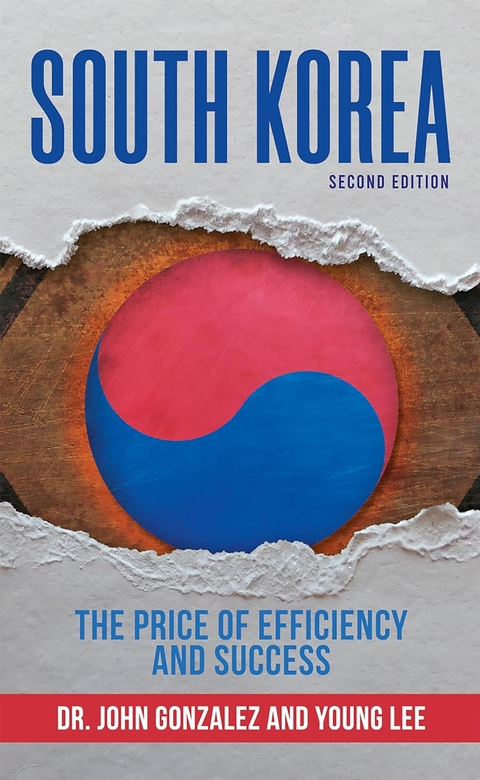Uncovering the complex truths behind one nation’s remarkable transformation, South Korea: The Price of Efficiency and Success by Dr. John Gonzalez and Young Lee is a probing and edifying read.
A nuanced dissection of Korean culture and the factors influencing its renaissance as an economic leader on the world stage, this engaging portrait of a complex nation will appeal to a wide audience – travelers, business professionals, economists, and history buffs alike. Backed by research studies and citations from reputable sources of print and digital media, the majority of the text focuses on contemporary developments and conflicts, with some historical background provided for context, for an impressive, fair, and comprehensive assessment.
Peppered with poignant moments illustrating the country’s humanity and generosity, the text reveals a proud country at a crossroads of its evolution, clinging to its traditional values, while also being pulled into the 21st century by technology, globalization, and capitalist influences. The text examines the economic and political shifts that have led to this tension, as well as the intrinsic qualities and tenets of Korean culture that affect the balance, such as unity/conformity, the relationship of customers to workers, a growing wealth gap, religious observation, fashion, medical access, community structures, generational divides and more.
The regular comparisons between Korea, the United States, and other nations highlight the stark differences in ideology and governance across many realms of life. For readers unfamiliar with Korea, chapters like “The View from 30,000 Feet” can help frame the mindset and cultural paradigms of Koreans more readily. As the title suggests, the drive for greater efficiency is a significant engine throughout Korean society, which manifests in ways that are simultaneously remarkable and worrying, from simple tools that deliver top-tier customer service to high-pressure expectations for perfection in educational and professional performance.
The deep dive into failures related to public safety is a chilling chapter and exemplifies how the rapid expansion of capitalistic enterprises in Korea has made regulation a perennial challenge, one that directly impacts the welfare of its citizens in myriad ways. While the authors’ veneration for South Korea is clear, their criticisms are well-defended and seemingly justified, as they attempt to objectively explore the compromises that governmental leaders and average citizens have had to make in order to catapult the country to economic prominence and geopolitical clout.
Transcending the often superficial depictions of travel writers and tourists, the authors’ time as residents in Korea not only granted them a cultural reverence that permeates these pages, but also intimate access to the people, opinions, and everyday realities of the nation. On a technical level, the book is meticulously structured, formatted, and edited; the tone is consistent and conversational, but confidently knowledgeable from start to finish. Although Gonzalez and Lee are able to explore a vast range of topics, their prose never feels lost in the weeds or inaccessibly dense, so while the subtitle of the book may make it seem like a dry business manual, the prose is engagingly readable, even if the subject matter can be heavy.
All told, this is a kaleidoscopic review of South Korean culture in the modern age – a detailed analysis of intrinsic motivations within the population, a philosophical manifesto on efficient thinking, and a relentlessly honest exposé on the inherent conflicts that exist and persist in this powerful Asian nation.
Book Links
STAR RATING
Design
Content
Editing
Get an Editorial Review | Get Amazon Sales & Reviews | Get Edited | Get Beta Readers | Enter the SPR Book Awards | Other Marketing Services
























Leave A Comment